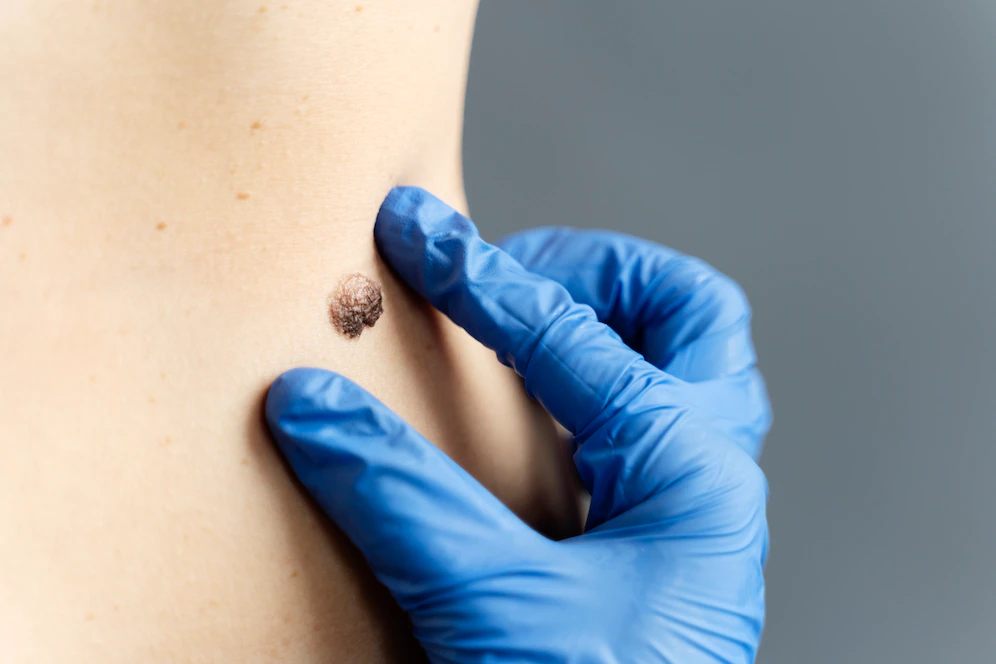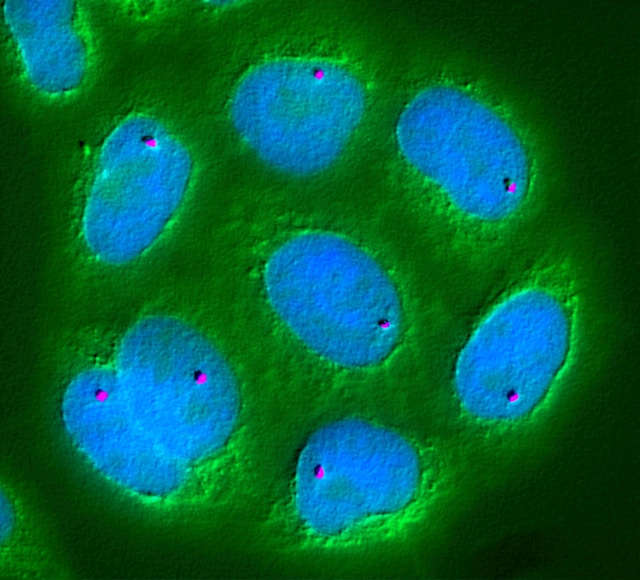In a development hailed as a possible cancer breakthrough, Moderna announced Tuesday that its experimental personalized cancer vaccine, employing the mRNA technology the company developed for COVID-19 vaccines, achieved positive results against melanoma, the deadliest form of skin cancer, when used in combination with Merck’s immunotherapy Keytruda.
Patients receiving Moderna’s mRNA-4157/V940 vaccine along with Keytruda had a 44% lower risk of recurrence or death from melanoma than those receiving Keytruda alone in a Phase 2B clinical trial, Moderna said.
Synthetic messenger RNA (mRNA) “has been transformative for COVID-19, and now, for the first time ever, we have demonstrated the potential for mRNA to have an impact on outcomes in a randomized clinical trial in melanoma,” said Moderna CEO Stéphane Bancel. “We will begin additional studies in melanoma and other forms of cancer with the goal of bringing truly individualized cancer treatments to patients.”
The mRNA technology is used to personalize the vaccine “to prime the immune system so that a patient can generate a tailored antitumor response specific to their tumor mutation signature,” Moderna’s announcement explained.
“It is absolutely a world first, to show you can personalize a cancer vaccine in patients who already have cancer. It may be the penicillin moment in cancer therapy,” Professor Georgina Long of the Melanoma Institute of Australia told Australia’s ABC News. “It is possible to see that (patients) may have cancer as a long-term disease rather than a death sentence.”
Best of both worlds
In October Moderna and Merck announced they would initiate the planned development of a treatment for people with high-risk melanoma, as we’ve previously reported.
Merck’s monoclonal antibody Keytruda—described as an immunotherapy that works by increasing the ability of the body’s immune system to help detect and fight tumor cells—has been approved by the FDA to treat several different types of cancer. Moderna said its mRNA-4157/V940 is designed “to stimulate an immune response by generating T cell responses based on the mutational signature of a patient’s tumor.”
Their cooperation was based on a “strategic collaboration and license agreement to develop and commercialize novel mRNA-based PCVs” (personalized cancer vaccines) signed in 2016, Moderna said.
“This long-term collaboration combining Merck’s expertise in immuno-oncology with Moderna’s pioneering mRNA technology has yielded a novel tailored vaccine approach,” said Dr. Eliav Barr, senior VP and head of global clinical development at Merck Research Laboratories.




